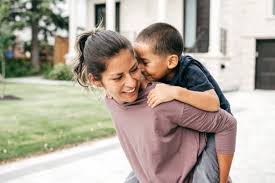Teaching Empathy and Respect to Toddlers

In the early years of childhood, toddlers are like sponges, absorbing the world around them and learning from every interaction. As parents and caregivers, one of the most important lessons we can impart to our little ones is empathy and respect for others. Teaching toddlers these essential qualities not only lays the foundation for positive social interactions but also fosters kindness, compassion, and understanding as they grow.
What is Empathy and Respect?
Empathy is the ability to understand and share the feelings of others. It involves recognizing and responding to someone else’s emotions with care and compassion. Respect, on the other hand, is showing consideration and regard for the thoughts, feelings, and rights of others. Together, empathy and respect form the basis of healthy relationships and effective communication.
Why Teaching Empathy and Respect to Toddlers Matters
Empathy and respect are essential life skills that contribute to a child’s social and emotional development. By teaching toddlers to empathize with others and respect their feelings and boundaries, we empower them to take care of social situations with kindness and understanding. These qualities also help toddlers build strong and meaningful connections with their peers, family members, and the broader community.
Tips for Teaching Empathy and Respect to Toddlers
- Lead by Example: Children learn best by observing the behavior of adults around them. Model empathy and respect in your interactions with others, including your toddler. Show kindness, patience, and understanding in your words and actions.
- Use Positive Language: Use language that promotes empathy and respect when communicating with your toddler. Encourage them to use words like “please,” “thank you,” and “I’m sorry” to express their feelings and communicate with others.
- Read Books About Empathy: Choose age appropriate books that teach empathy, kindness, and respect. Use these stories as opportunities to discuss emotions, perspective taking, and how characters in the story treat each other.
- Practice Active Listening: Encourage your toddler to express their thoughts and feelings openly. Practice active listening by giving them your full attention, maintaining eye contact, and validating their emotions.
- Encourage Perspective Taking: Help your toddler understand other people’s perspectives by asking questions like, “How do you think your friend feels?” or “What would you do if you were in their shoes?” Encourage them to consider different points of view.
- Teach Problem Solving Skills: Teach toddlers how to resolve conflicts peacefully and respectfully. Encourage them to brainstorm solutions, compromise, and find win-win outcomes when conflicts arise.
- Provide Opportunities for Empathy: Create opportunities for your toddler to practice empathy and kindness in their daily lives. This could involve caring for a pet, helping a friend in need, or participating in acts of kindness in the community.
- Set Clear Expectations: Establish clear expectations for behavior and boundaries, and consistently reinforce them with gentle reminders and positive reinforcement. Encourage your toddler to respect the feelings and personal space of others.
- Celebrate Diversity: Teach toddlers to appreciate and celebrate differences in others, whether it is differences in culture, abilities, or interests. Encourage them to embrace diversity and treat everyone with kindness and respect.
- Provide Emotional Support: Be there to support your toddler through their own emotional experiences. Validate their feelings, offer comfort and reassurance, and help them develop healthy coping strategies for managing strong emotions.
SEE ALSO:
Effective Positive Discipline Strategies For Toddlers
Diapering Tips and Techniques For New Parents
Overcoming Breastfeeding Challenges
Breastfeeding Positions And Latching Techniques
Takeaway
Teaching empathy and respect to toddlers is a rewarding but ongoing process that requires patience, consistency, and compassion. By modeling these qualities, providing guidance and support, and creating opportunities for practice, parents and caregivers can help their little ones develop the essential skills they need to to grow with kindness, understanding, and respect for others. Through these efforts, we can nurture a generation of empathetic and respectful individuals who contribute positively to their communities and make the world a better place for all.
Leave a Reply